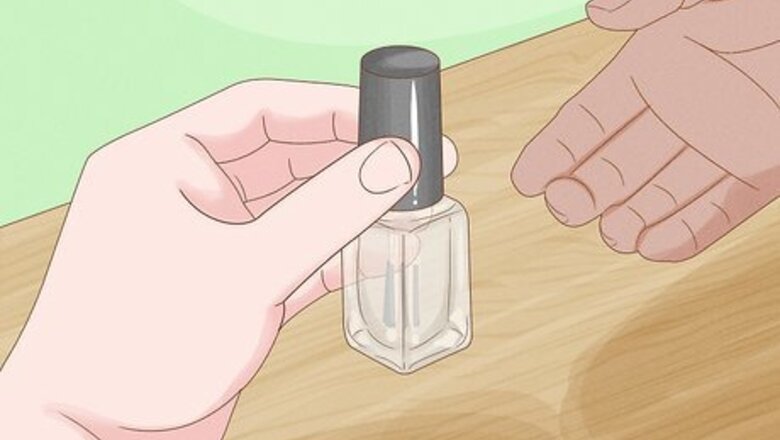
views
Using Adhesive on Small Holes
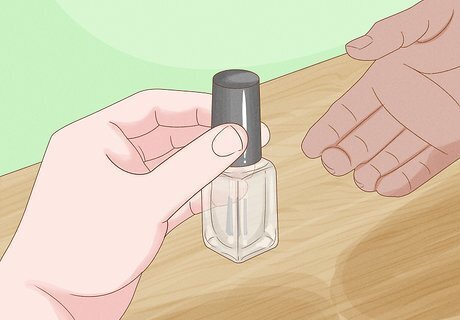
Purchase clear nail polish from a local store. After drying, nail polish works as a strong adhesive for small holes. Use nail polish on minor repairs if your tear isn't significantly gaping. Choose clear polish to make the adhesive as unnoticeable as possible. If your screen is tinted, you can use a darker polish (like gray or black).
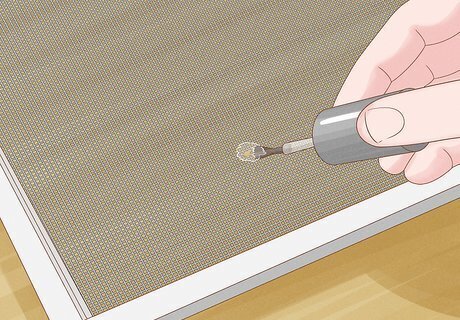
Brush the nail polish directly over the tear. Place a small amount of polish over both ends of the tear to glue it together. Apply enough to coat the tear without dripping polish onto anything else. Apply the polish on both sides of the area to increase the adhesive's durability. If you're worried about accidental drips, place a cloth or paper towel over the area in which you're repairing the screen.
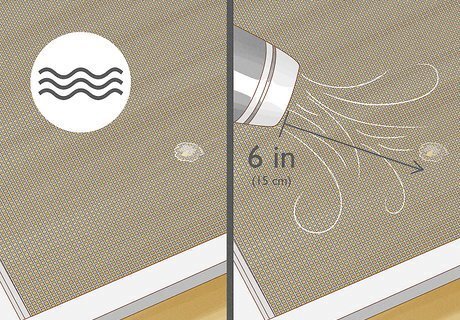
Wait for the nail polish to dry. Your polish may look dry after several minutes, but it can take up to a day to dry completely. If you don't have time to let the polish dry for multiple hours, use a hair dryer on the cool setting to quicken the process. Place the blow dryer about 6 inches (15 cm) away from the screen and blast it for about one minute. Clean your window screen with cold water to quicken the drying process. Do not clean your repaired window with hot water, as it can loosen nail polish.
Darning Your Window Screen
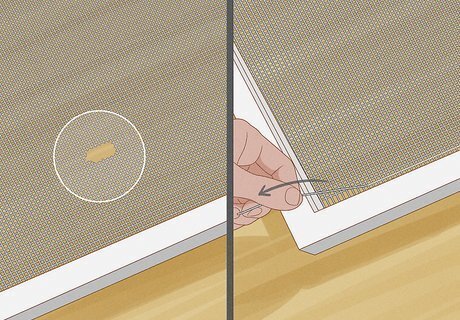
Unravel a few strands from the window screen. Sewing the screen shut is an option if the hole is too large to use adhesive. In some cases, you will not be able to sew the screen together without stitching a piece of scrap screening over the damaged area. To prep the screen for darning, unravel a few strands from the perimeter of the screen to use as your thread.
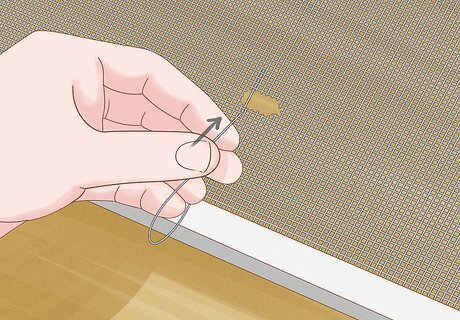
Line up the window screen seams as neatly as possible. Match the two ends of the screen as evenly as you can. If you cannot line up the two ends without leaving a noticeable hole in the middle, you may need to sew a piece of scrap screening over the hole. If you have any old or broken window screens, cut out a rectangle that is approximately the size of the hole. Patch screen material can work if no scrap screening is available.
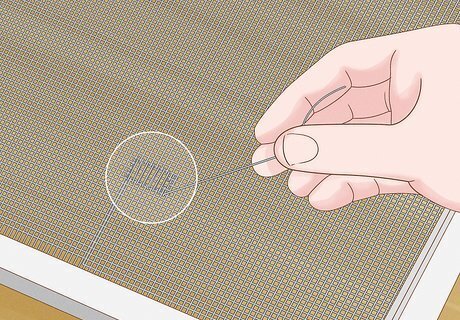
Weave the strands through the screen with a needle. Once the torn edges are lined up, use a needle to weave the thread through the screen strands. If you don't have strands of screen material available, use a strong, long lasting thread (like heavy-duty or polyester thread). Make the stitches as small and identical as possible, and continue sewing until the hole is closed. Sew the torn edges together first and then, if the hole is still noticeable, place the patch over top and sew around its perimeter.
Patching Holes
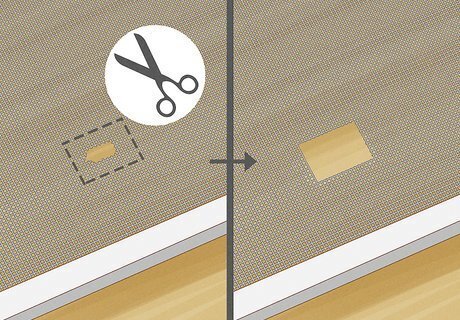
Tim the damaged area into a neat square or rectangle. Using a straightedge or sharp knife, cut a clean hole around the screen tear. Make this new hole as small as possible to keep it manageable. Leave at least ⁄2–1 inch (1.3–2.5 cm) of screen between the hole and the window frame.
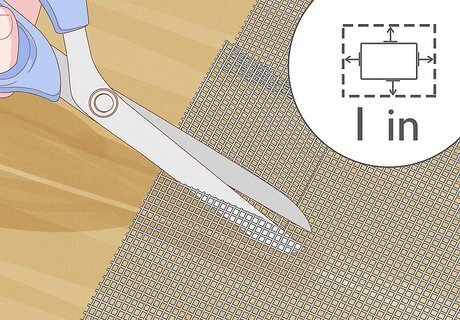
Cut a piece of patch screen material for the damaged area. The new patch should be slightly larger than the rectangular hole. Measure the patch before you cut to make certain it is at least 1 inch (2.5 cm) larger than the damaged area.
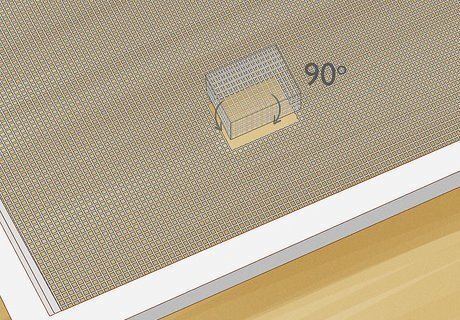
Loosen the perimeter weaving of the opening and the patch. Slack ends around the opening will make it more receptive and adhered to the new patch. Make sure the entire perimeter of the patch is loosened as well. Bend each unraveled end on the sides of the patch at a 90 degree angle.
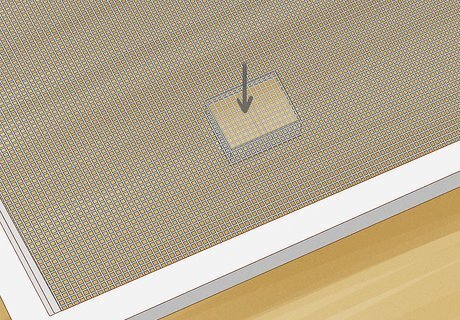
Feed the bent patch ends through the screen. Work the patch ends through the weaving surrounding the opening in the screen. Then, bend the wires of the patch flat on the other side of the screen to hold the patch in place. Finally, adhere the patch to the screen with clear, waterproof silicone glue. If you don't want to weave the tear together, just glue it onto the existing screen. Wipe away glue drips with a microfiber cloth before they harden to keep the repair smooth. Clear nail polish will work as an adhesive, as well. Alternatively, purchase adhesive-backed patches to securely press over the damaged area without glue.




















Comments
0 comment